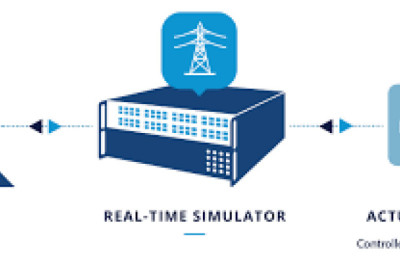views
Imagine a world where all your data is easily accessible, secure, and stored in one place. That's what Network Attached Storage (NAS) aims to provide. In this digital age, where data is king, understanding NAS and its benefits is crucial for individuals, small businesses, and large enterprises alike.
Introduction to NAS
Network Attached Storage (NAS) is a centralized storage solution that allows multiple users and devices to access data over a network. Unlike traditional storage methods, NAS connects directly to your network, making it easier to share files and manage data. We’ll walk you through the basics of what is NAS, why it's important, and how it can benefit you or your business.
The Basics of NAS
NAS is essentially a specialized computer that serves as a storage server. It is equipped with multiple hard drives configured in RAID (Redundant Array of Independent Disks) to ensure data redundancy and protection. The primary function of NAS is to store and share files across different devices within a network. This makes it ideal for home users who want to access media across various devices or businesses that need to manage large volumes of data efficiently.
Key Components of NAS
A typical NAS unit comprises a motherboard, processor, memory, and storage drives. These components are housed within a dedicated enclosure that connects to your network. The processor and memory work together to handle data requests from connected devices, ensuring smooth operation and fast access speeds. Additionally, NAS units often come with user-friendly operating systems that make setup and management straightforward.
Benefits of NAS for Home Users
For home users, NAS offers several advantages. First, it provides a centralized location for storing all your digital content, from photos and videos to documents and music. This means you can easily access your files from any device connected to your network. Second, NAS solutions often include media streaming capabilities, allowing you to stream movies and music directly to your smart TV or other devices.
The Role of NAS in Businesses
Businesses, regardless of size, can greatly benefit from implementing NAS solutions. NAS allows companies to centralize their data storage, making it easier to manage and share files among employees. By implementing NAS, businesses can increase productivity, improve collaboration, and reduce the risk of data loss due to hardware failures or cyber threats.
Scale-Out NAS for Growing Enterprises
As businesses grow, so do their data storage needs. This is where scale-out NAS comes into play. Scale out NAS allows companies to expand their storage capacity seamlessly by adding additional NAS units to their existing infrastructure. This ensures that businesses can continue to operate without disruption, even as their data storage requirements increase.
NAS vs. Other Storage Solutions
When considering storage options, it's important to understand how NAS compares to other solutions like Direct Attached Storage (DAS) and Storage Area Networks (SAN). While DAS connects directly to a computer and SAN operates at the block level, NAS is designed for file-level storage. This makes NAS more flexible and accessible for both home and business users, offering a balance between performance and ease of use.
How to Choose the Right NAS for You?
Selecting the right NAS solution depends on your specific needs and budget. Key factors to consider include the number of users who will access the NAS, the type of files you need to store, and the level of data protection required. Additionally, look for features like automatic backups, remote access capabilities, and compatibility with third-party apps to enhance functionality.
Setting Up Your NAS
Setting up a NAS is simpler than you might think. Most NAS units come with a step-by-step setup guide to help you get started. Begin by connecting the NAS to your router and powering it on. Next, configure the settings through the NAS operating system interface, including creating user accounts and setting permissions. Finally, start transferring your files to the NAS and enjoy easy access across all your devices.
Securing Your NAS
Security is a top priority when it comes to data storage. NAS units offer several built-in security features to protect your data, such as user authentication, data encryption, and automated backups. To further enhance security, ensure your NAS firmware is always up to date, and consider using a strong password and enabling two-factor authentication.
Common Use Cases for NAS
NAS solutions are versatile and can be used for various applications. Home users might use NAS to back up family photos, store digital media, or even host a home server. Businesses can benefit from NAS by using it to host email servers, manage customer databases, or store project files. Regardless of the application, NAS provides a reliable and scalable solution for data storage needs.
The Future of NAS
With the rapid advancement of technology, NAS continues to evolve. Future developments may include integration with cloud services, enhanced AI capabilities for data management, and greater energy efficiency. These advancements will further solidify NAS as a critical component in data storage and management strategies for both individuals and businesses.
Conclusion
In summary, Network Attached Storage (NAS) offers a flexible, reliable, and scalable solution for data storage needs. Whether you're a home user looking to centralize your media or a business aiming to improve data management, NAS has something to offer. By understanding the basics and benefits of NAS, you can make an informed decision on how to best incorporate this technology into your life or business.
If you're interested in learning more about NAS and how it can transform your data storage strategy, consider reaching out to industry experts or exploring additional resources available online.











